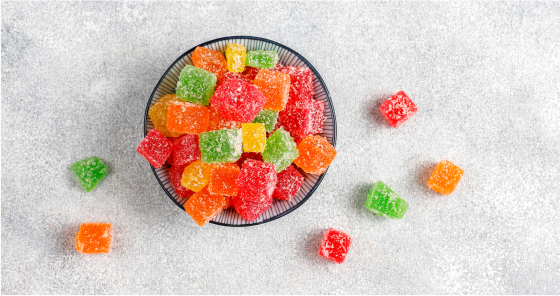Is white-label manufacturing different from private label manufacturing?
In the dynamic and ever-evolving world of ingestible wellness products and supplements, businesses often explore various strategies to bring their offerings to the market. Two commonly used terms in this industry are “white label manufacturing”, and “private label manufacturing.”
While they might sound similar, understanding the nuances between them is crucial for businesses aiming to carve a niche in the competitive market.
White Label Manufacturing
White-label manufacturing refers to the process where a company purchases generic products from a third-party manufacturer and then sells them under its brand name.
In the context of the ingestible wellness products industry, this could involve sourcing pre-formulated supplements or wellness products from a manufacturer and branding them with the purchasing company’s label.
Advantages of White Label Manufacturing:
- Cost-Effective: White-label manufacturing allows businesses to bring products to market without the need for significant upfront investment in research, development, and production.
- Speed to Market: Since the products are already formulated and manufactured, businesses can launch their products quickly, reducing time-to-market.
- Low Risk: With minimal investment in product development, businesses face lower risks compared to developing a product from scratch.
Private Label Manufacturing:
On the other hand, private label involves a more customized approach. In this model, a business works closely with a manufacturer to develop unique formulations tailored to their specifications. The products are then produced and sold under the brand name of the purchasing company.
Advantages of Private Label Manufacturing:
- Brand Differentiation: Private label allows businesses to differentiate themselves in the market by offering unique formulations that are not readily available from competitors.
- Brand Control: Companies have greater control over the entire product development process, ensuring that the final product aligns with their brand identity and quality standards.
- Exclusive Products: Private label products are exclusive to the brand, providing a competitive edge in the market.
Distinguishing Factors in the Ingestible Wellness Products Industry:
- Customization:
- White Label: Limited customization options as businesses choose from pre-existing formulations.
- Private Label: High degree of customization, allowing businesses to create unique and tailored products.
- Control Over Formulation:
- White Label: Limited control, as businesses select from existing formulations provided by the manufacturer.
- Private Label: Full control over the formulation, allowing businesses to address specific market demands and consumer preferences.
- Branding and Marketing:
- White Label: Products are sold under the purchasing company’s brand, but differentiation is primarily through marketing and branding strategies.
- Private Label: Products are exclusive to the brand, enabling businesses to build a distinct identity and narrative.
Conclusion:
In the competitive landscape of the ingestible wellness products industry, both, white-label manufacturing and private label offer distinct advantages. The choice between the two depends on factors such as budget, time constraints, and the level of control and customization desired by the business.
Understanding these differences empowers businesses to make informed decisions that align with their goals and contribute to their success in the flourishing world of ingestible wellness products and supplements.
We at Pacific Manufacturing and Design cater to meet your requirements and fulfill your overall business growth objectives through our extraordinary and customized solutions. Enhancing your overall needs and preferences, we promise to use the exact formulation you need, making your product unique and one-of-a-kind.
Let’s get started!




